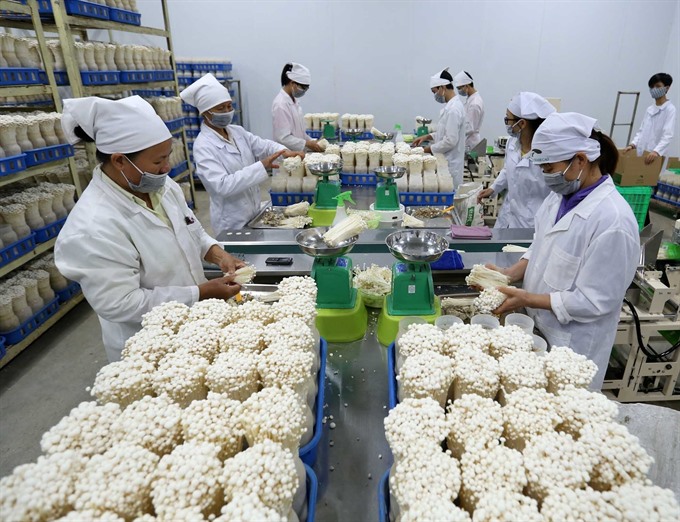Viet Nam should become one of world’s top 15 most developed agricultural nations in the next ten years, said Prime Minister Nguyen Xuan Phuc.

Viet Nam should become one of world’s top 15 most developed agricultural nations in the next ten years, said Prime Minister Nguyen Xuan Phuc.
He made the statement at a meeting on reviewing works in 2018 and launching tasks for 2019 for the Ministry of Agriculture and Rural Development (MARD) held on Thursday in Ha Noi.
At the event, the PM highlighted the outstanding achievements made by the ministry in the past 12 months.
The country ranks second in Southeast Asia in exporting agricultural products; a total number of 18 agricultural processing plants were built and put into operation and there was also a reduction of 173 of the 345 business conditions (a 50 per cent cut), meeting the government’s request.
“The most important thing is we have established 1,096 food safety chains for more than 1,400 products and organised many forums to promote agricultural products for farmers,” he said.
While applauding the achievements, the PM also pointed out the outstanding issues which should be settled, including the high portion of labourers in the agricultural sector (accounting for 38 per cent of the total workforce) and agricultural restructuring which was not implemented synchronously in many localities. Environmental pollution in rural areas and high rate of post-harvest loss are also issues to be dealt with.
PM Phuc proposed that in the next ten years, the agricultural sector must work to make Viet Nam one of the world’s top 15 most agriculturally developed countries and the world’s top 10 agricultural processing countries.
Viet Nam should be a world’s hub for wood processing and export and the world’s largest shrimp producer.
More measures and creative ideas should be laid out to achieve the growth target of at least 3 per cent and gain US$42-43 billion in agro-fishery-forestry export turnover this year.
To realise the targets, the PM said, it was necessary to have better laws and eliminate backward regulations to push up the sector’s development.
The restructuring of the agricultural growth model should be promoted, focusing on the establishment of key products at national, provincial and local levels, he said.
The PM emphasised the need to enhance market forecasting works including balancing supply and demand, developing new markets and building trade marks in agriculture from rice, shrimp, rice varieties and tra fish.
Attention should be also paid to the application of science and technology, with priority given to high-tech and biological technology, taking advantaged of achievements of the Fourth Industrial Revolution, artificial intelligence and large databases.
On the occasion, the PM asked the sector to closely follow the development of weather and disasters to proactively cope with natural calamities.
Dang Ngoc Son, deputy chairman of Ha Tinh Province’s People’s Committee said the biggest difficulty for agricultural restructuring is land accumulation. He called on the Government and the agriculture ministry to create mechanisms and policies to facilitate land accumulation in order to promote production, especially in rice and orchards.
He also said MARD should supplement additional development policies to encourage the development of modern large-scale commodity agriculture in line with local advantages, as a driving force for local development.
Tran Tuan Anh, Minister of Industry and Trade (MoIT) said it was necessary to reorganise production and improve the quality of the products, opening the market and exploit tariff preferences while overcoming technical barriers from other countries.
He said in the future, the MoIT would coordinate with MARD in unifying an action plan to review key economic zones and key national agricultural products. The two ministries would evaluate the market and organise training for farmers, producers and relating associations. — VNS





